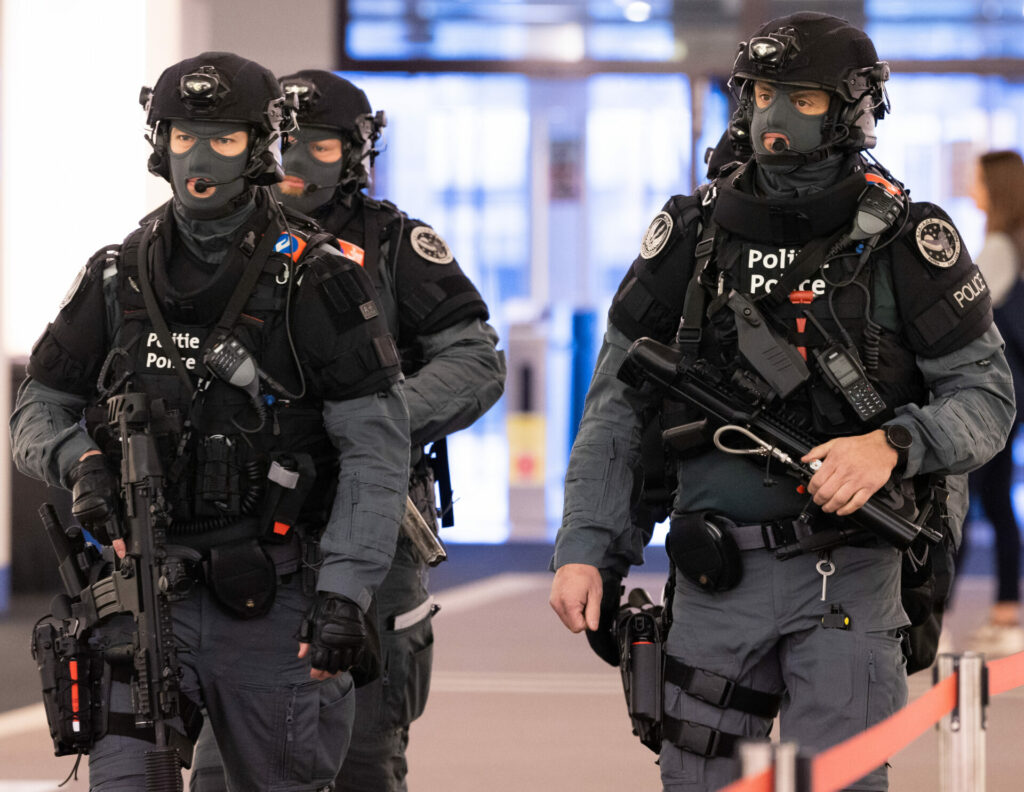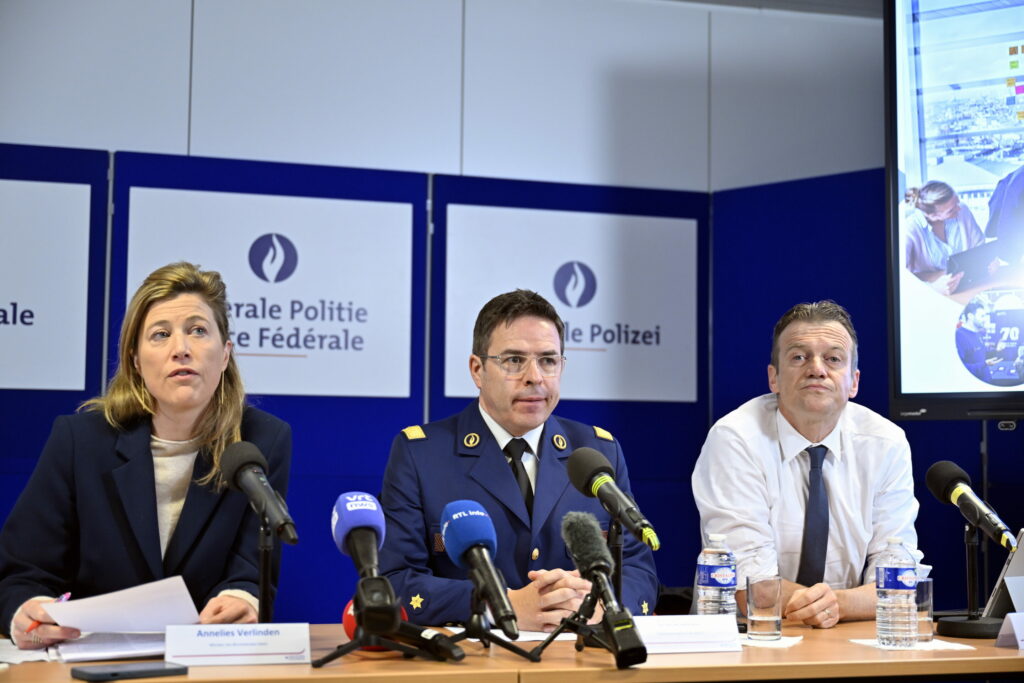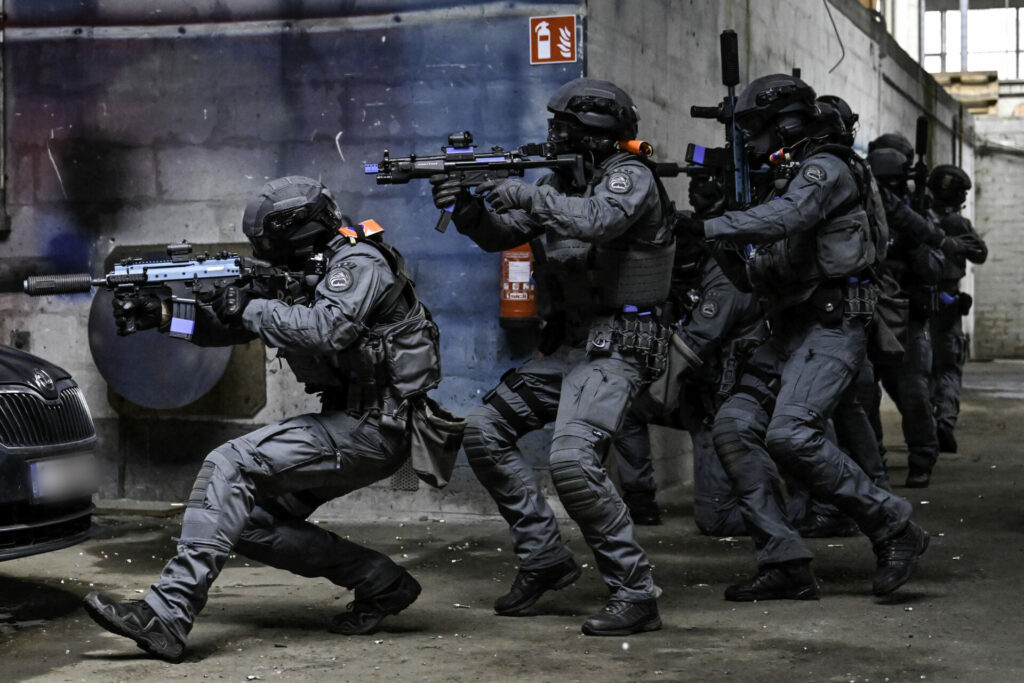Local authorities and police zones are struggling to put a lid on the escalating drug-related violence in parts of Brussels. But experts warn that the difficulties on the ground can only be tackled effectively by taking on international drug gangs from the very top.
"Those gangs operate internationally. We know the Albanian mafia is in Brussels, uses the port of Antwerp and of course has links with Albania and the rest of the Balkans," Federal Justice Minister Paul Van Tigchelt (Open VLD) stated in an interview on VRT.
"We need to have sufficient information to tackle this and must take this position at the European level," he said, adding that the Belgian Presidency of the Council of the EU can play a part. The minister has asked Eupol's Executive Director Catherine De Bolle (also Belgian) to make a criminal analysis of Europe.
"We can deal with the violence in a better way if we know who's who. There is the 'Ndrangheta mafia, the Albanian mafia, the Moroccan mafia, the Scandinavian motorbike gangs... We need that overview but it doesn't yet exist."
A battle on all fronts
Belgium's Minister of Interior Affairs Annelies Verlinden (CD&V) stated that organised crime and street violence must be fought "on all fronts, at all levels and with all partners." She argued that it is futile to focus only on the federal level: "local administrations are also responsible".
Her statements follow calls from Saint-Gilles mayor Jean Spinette and Brussels Minister-President Rudi Vervoort for the Federal Government to tackle the problem at the root: namely the international gangs trafficking drugs into Brussels.
"Our services are on the ground every day but our local police are not properly equipped. We cannot keep mopping up with the tap fully on," Vervoort's office told The Brussels Times on Wednesday.

Armed Belgian police. Credit: Belga / Benoit Doppagne
But Verlinden stressed that the fight against organised crime already involves virtually all police units. "Intensive efforts" are being made to implement a "coordinated, integrated and international approach" to criminal organisations, with the aim of greater efficiency and all-important results.
She pointed to the Federal Police's annual report, which comes at a time when the country is again confronted with drug-related street violence that has led to several people injured and one death.
"The complex nature of the drug problem and its offshoots touch on different aspects of our society." Verlinden added that local governments are responsible for the liveability and safety on the streets. She stressed their responsibility to ensure that local police have sufficient resources.
Protecting Brussels
In the wake of the latest incidents in Saint-Gilles – as well as in the Peterbos neighbourhood in Anderlecht – Brussels Midi police chief Jurgen De Landsheer has highlighted the need for urgent police reinforcements; his zone has a 20% staff shortage, equal to over 200 police officers.
"Recruitment and selection takes time, nobody can expect the historical shortages to be eliminated immediately but we are going to reap the benefits of the recruitment efforts in the coming months," Verlinden said.
At about 50,000, the integrated police currently has more employees than ever, says Verlinden. "But public expectations are growing and the fight against crime is causing anxiety within the organisations."
The Ecolo-Groen group in the Federal Parliament is calling for a special meeting of the Home Affairs Committee, with the Justice and Interior Affairs Ministers, to discuss immediate measures to confront the violence.
"Urgent action at the federal and regional level is necessary to protect Brussels and the people of Brussels," group leader Gilles Vanden Burre wrote on social media on Thursday. A regular meeting of the Home Affairs Committee is on the Chamber's agenda on Tuesday.
A total of 4,707 years of prison sentences were issued in 2023 following investigations by the Federal Judicial Police. "About 45% of these – 2,130 years – concern convictions for drug-related offences. Many of these cases started in 2021 with the cracking of the Sky ECC crypto network," Van Tigchelt revealed.
"We are increasingly hitting criminal organisations where it really hurts: €213,670,000 of criminal money was seized during ongoing investigations last year. We are getting better in breaking the backbone of organised crime."

Interior Minister Annelies Verlinden (left), federal judicial police director Eric Snoeck (middle) and Minister of Justice Paul Van Tigchelt. Credit: Belga/Eric Lalmand
Last year, the Organised Crime Observatory was set up to become an important instrument in the fight against criminal organisations. It maps the activities of criminal organisations, assessing their size, the threat they pose and their destabilising effect on society.
In addition, the police's Fugitive Active Search Team (FAST) opened 194 cases, which led to 44 (international) arrests of criminals or suspects who were convicted in Belgium. "International police cooperation is more important than ever in the fight against international criminal organisations," Van Tigchelt said.
Related News
- Funding boost, Brussels drug commissioner and more police needed to tackle drug violence
- Four shootings in three days: What is happening around Porte de Hal?
- Person with assault rifle intercepted in Brussels Marolles
Verlinden stressed that the fight against international crime "remains a priority" for the Federal Government and the Federal Police. She added that nearly €500 million more has been invested in police services this legislature and pointed to the newly established Port Security Corps in the port of Antwerp, created "to remove as many drugs as possible from the ports and certainly from the streets."
The maritime police carried out 157 drug-related arrests in 2023. The National Drug Commission also coordinates efforts at national and international levels.
"It is our damn responsibility to tackle this issue. We can reduce that crime and that violence if we effectively crack that criminal revenue model," Justice Minister Van Tigchelt said.
"This is a top priority and we are getting results. But as I said before: it will get worse before it gets better. This is not a Brussels or Antwerp problem, this is not even a national or European problem. It is a global problem."

